R&D Manager
(Etcheverry & Hesse Shops)
hugo.ortiz@berkeley.edu
For more information see:

This is an unsorted archive of all people associated with the Department of Mechanical Engineering. Please see our main faculty page to access Mechanical Engineering People.
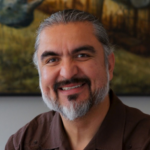
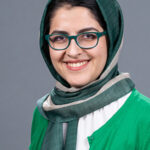
Assistant Professor of Mechanical Engineering
5126 Etcheverry HallDr. Negar Mehr will join the Department of Mechanical Engineering at the University of California, Berkeley in January of 2024. She is currently an assistant professor of Aerospace Engineering at the University of Illinois Urbana-Champaign. She is also affiliated with the Coordinated Science Laboratory (CSL) and Electrical and Computer Engineering department at UIUC. Previously, she was a postdoctoral scholar at Stanford Aeronautics and Astronautics department from 2019 to 2020. She received her Ph.D. in Mechanical Engineering from UC Berkeley in 2019 and her B.Sc. in Mechanical Engineering from Sharif University of Technology, Tehran, Iran, in 2013. She is a recipient of the NSF CAREER Award. She was awarded the IEEE Intelligent Transportation Systems best Ph.D. dissertation award in 2020. Negar was recognized as a rising star in EECS, Aeronautics & Astronautics, and Civil and Environmental Engineering.
Dr. Mehr’s research focuses on creating algorithms and mathematical models for autonomous systems to interact safely and intelligently with humans and other autonomous systems. As AI advances, robots can handle more complex tasks, and the key to unlocking their full potential lies in their ability to operate safely and intelligently in unstructured environments alongside other agents. Dr. Mehr’s group aims to equip robots with such capabilities. Her research interests lie at the intersection of robotics, control theory, game theory, and machine learning. She has published in top robotics and control journals and conferences. Her research has had applications in various domains including space exploration, autonomous driving, UAVs, and assistive robots. She runs the Intelligent Control (ICON) lab where her group utilizes robotic hardware for verifying and testing their developed control algorithms.
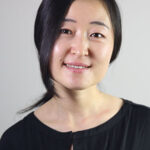
Assistant Professor of Mechanical Engineering
5128 Etcheverry HallDr. Lining Yao will be joining the Department of Mechanical Engineering at the University of California, Berkeley in January of 2024. She is currently a Cooper-Siegel Associate Professor of Human-Computer Interaction at Carnegie Mellon University (CMU), School of Computer Science, directing the Morphing Matter Lab. Dr. Yao also has courtesy appointments in Mechanical Engineering and Materials Science and Engineering at CMU and serves as a core team member of the Softbotics initiative and on the University Advisory Board of the Future Manufacturing Institute. Dr. Yao received her Ph.D. from the MIT Media Lab in 2017. She is the co-founder of the MorphingMatter4Girls Initiative, a Wired UK fellow, an appointed instructor in eco-design by the United Nations Industrial Development Organization, a CMU Provost’s Inclusive Teaching Fellow, and a recipient of the NSF CAREER Award.
Dr. Lining Yao’s research explores the positive impact of active and morphing materials on sustainable design across different scales and contexts. Her work focuses on discovering and studying morphing material mechanisms, as well as algorithms for computational design and fabrication pipelines. Dr. Yao has published in both computer science and physical science venues and has received nine Best Paper or Best Talk Awards and nominations from premier conferences in Human-Computer Interaction. Her journal papers have been featured as cover stories in Nature, Science Advances, and Advanced Materials Technologies.
Luo, D., Maheshwari, A., Danielescu, A., Li, J., Yang, Y., Tao, Y., Sun, L., Patel, D. K., Wang, G., Yang, S., Zhang, T., and Yao, L., 2023, “Autonomous Self-Burying Seed Carriers for Aerial Seeding,” Nature, 614(7948), pp. 463–470. https://www.nature.com/articles/s41586-022-05656-3
Tao, Y., Lee, Y.-C., Liu, H., Zhang, X., Cui, J., Mondoa, C., Babaei, M., Santillan, J., Wang, G., Luo, D., Liu, D., Yang, H., Do, Y., Sun, L., Wang, W., Zhang, T., and Yao, L., 2021, “Morphing Pasta and Beyond,” Sci. Adv., 7(19), p. eabf4098. https://advances.sciencemag.org/content/7/19/eabf4098
Patel, D. K., Huang, X., Luo, Y., Mungekar, M., Jawed, M. K., Yao, L., and Majidi, C., 2022, “Highly Dynamic Bistable Soft Actuator for Reconfigurable Multimodal Soft Robots,” Adv Materials Technologies, p. 2201259. https://onlinelibrary.wiley.com/doi/10.1002/admt.202201259
Yang, H., Qian, K., Liu, H., Yu, Y., Gu, J., McGehee, M., Zhang, Y. J., and Yao, L., 2020, “Simulearn: Fast and Accurate Simulator to Support Morphing Materials Design and Workflows,” Proceedings of the 33rd Annual ACM Symposium on User Interface Software and Technology, Association for Computing Machinery, New York, NY, USA, pp. 71–84. https://dl.acm.org/doi/10.1145/3379337.3415867
An, B., Wu, H.-Y., Zhang, T., Yao, L., Tao, Y., Gu, J., Cheng, T., Chen, X. “Anthony,” Zhang, X., Zhao, W., Do, Y., and Takahashi, S., 2018, “Thermorph: Democratizing 4D Printing of Self-Folding Materials and Interfaces,” Proceedings of the 2018 CHI Conference on Human Factors in Computing Systems – CHI ’18, ACM Press, Montreal QC, Canada, pp. 1–12. https://dl.acm.org/doi/10.1145/3173574.3173834
Wang, W., Yao, L., Cheng, C.-Y., Zhang, T., Atsumi, H., Wang, L., Wang, G., Anilionyte, O., Steiner, H., Ou, J., Zhou, K., Wawrousek, C., Petrecca, K., Belcher, A. M., Karnik, R., Zhao, X., Wang, D. I. C., and Ishii, H., 2017, “Harnessing the Hygroscopic and Biofluorescent Behaviors of Genetically Tractable Microbial Cells to Design Biohybrid Wearables,” Sci. Adv., 3(5), p. e1601984. https://www.science.org/doi/10.1126/sciadv.1601984
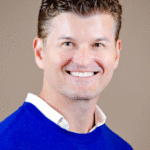
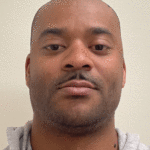
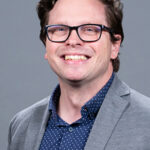
Assistant Professor of Mechanical Engineering
6107 Etcheverry HallDr. Thomas Schutzius is starting as an assistant professor in the Department of Mechanical Engineering at UC Berkeley in January 2023. Previously, he was an Assistant Professor at ETH Zurich where he led the Laboratory for Multiphase Thermofluidics and Surface Nanoengineering. His research intersects the multidisciplinary fields of energy, surface science and engineering, and thermofluidics, and his experimental work captures the fundamental dynamics of a vast array of interfacial and micro-nanoscale transport phenomena. Dr. Schutzius received the prestigious ERC Starting Grant, which supported his research on understanding the fundamentals of limescale formation on surfaces (scaling) and using this knowledge to rationally engineer “scale-phobic” surfaces. In 2020 he received the ETH “Golden Owl” Award for excellent teaching and was a nominee for the KITE Award 2022 recognizing innovation in teaching. During his graduate studies, he was the recipient of the Dean’s Scholar Award and the UIC Outstanding Thesis Award. He also received the ETH Zurich Postdoctoral Fellowship. In 2018 he was part of the ETH Zurich representation to the prestigious Global Young Scientist Summit (GYSS) in Singapore.
Dr. Schutzius’ research group is committed to deepening our understanding of nanoscale transport phenomena and leveraging this knowledge for future transformative, sustainable water and energy technologies. Core competencies include micro/nanofabrication techniques, interfacial optical methods, and thermodynamic and interfacial modeling, which are use to study how surfaces and bulk materials can be (nano)engineered to enhance micro/nano-scale and interfacial transport. Based on the group’s findings, they develop and fine-tune materials and devices for application at the water-energy nexus or in healthcare.
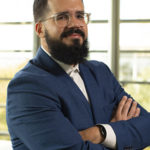
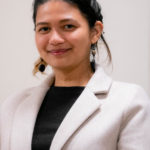
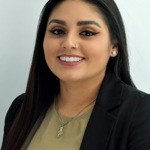
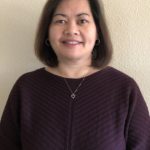
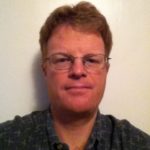
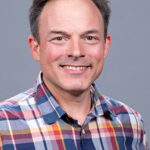
Professor of Mechanical Engineering
Professor of Nuclear Engineering
Chair, Department of Nuclear Engineering
E.S. Kuh Chair of Engineering
Professor Peter Hosemann received his MS (2005) and PhD (2008) in Material Science from the Montanuniversität Leoben, Austria. He conducted his PhD research on lead bismuth eutectic corrosion, ion beam irradiations and microscale mechanical testing at Los Alamos National Laboratory. He continued his research at Los Alamos National Laboratory as post doc and joined the UC Berkeley faculty in 2010. Professor Hosemann has authored more than 200 per reviewed publications since 2008. In 2014 he won the best reviewer of the journal of nuclear materials award, the ANS literature award and in 2015 he won the TMS early career faculty fellow award and the AIME Robert Lansing Hardy award. In 2018 he became the chair of the nuclear engineering department and in 2020 he was named as the E.S. Kuh chair of engineering. In 2021 he became associate editor of the journal of applied physics. While being dedicated to his research and teaching he also leads the UC Berkeley Bladesmithing team which won the title of “best example of a traditional blade” for UC Berkeley and is the lead faculty for the CalSol solar car racing team which won the American Solar challenge for Berkeley in 2017.
Professor Peter Hosemann’s research is centered around materials in extreme environments and materials processing. His focus lies in mechanical performance and microstructural characterization of structural materials as well as in environmental degradation of materials in extreme environments. Multi scale mechanical property quantification and their implications for engineering performance as well as corrosion in unusual environments are part of the research. Furthermore, professor Hosemann is interested in the manufacturing of materials (from ore to product) and most recently in micromanufacturing of geometries using short, pulsed lasers.
To view a list of Professor Hosemann’s publications, please click here.
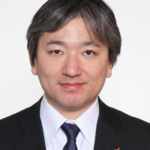
Dr. Kiyonori Inaba is Director, Executive Managing Officer and General Manager of the Robot Business Division of FANUC Corporation, a global leader in factory automation, industrial robots, and advanced technologies used in manufacturing.
As General Manager of the Robot Business Division, he oversees robot business operations in both product development and sales/marketing. Dr.Inaba joined the Company in 2009 and spent his initial career in developing robot control software, pioneering the development of “learning robots”, robots which optimize their own motion to increase throughput and path accuracy. In 2013, Dr. Inaba was promoted to General Manager of the Robot Laboratory, and was elected as a member of the Board of Directors, and currently serves as a Senior Managing Director.
Dr. Inaba earned his Ph.D. in mechanical engineering in 2008 from University of California, Berkeley.
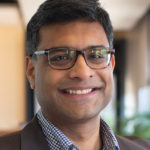
Faculty Director, Management, Entrepreneurship, & Technology Program
Faculty Director, Berkeley Haas Entrepreneurship Hub
Grimes M.E.T. Chancellor's Chair
Teaching Professor of Mechanical Engineering, College of Engineering
Teaching Professor of Entrepreneurship & Innovation and Management of Organizations, Haas School of Business
Saikat Chaudhuri is the inaugural Faculty Director of the Management, Entrepreneurship, & Technology (M.E.T.) Program, a flagship dual-degree program in engineering and business at the University of California at Berkeley. He is also the inaugural Faculty Director of the Berkeley Haas Entrepreneurship Hub, a startup incubator that aims to make entrepreneurship accessible and easier for everyone across the campus. He holds the Grimes M.E.T. Chancellor’s Chair at the university, with a joint faculty appointment in the Entrepreneurship & Innovation as well as Management of Organizations groups at the Haas School of Business, along with the department of Mechanical Engineering in the College of Engineering.
Chaudhuri’s research specializes in corporate growth and innovation strategies, particularly high-tech mergers and acquisitions, high-value outsourcing and partnerships, and technological innovation in dynamic environments. His publications span both scholarly and managerial outlets, and his work has been recognized from the field’s leading professional associations including the Academy of Management and Strategic Management Society.
An award-winning educator, Chaudhuri has not only designed and taught popular undergraduate and MBA courses on corporate strategy, management of technology, and innovation. He has also led and delivered customized executive education programs to a myriad of top firms around the world. He has been the recipient of numerous teaching awards and accolades at all levels across his academic career.
Chaudhuri’s work has been cited by leading media, and he is often interviewed or quoted by the global press on contemporary business affairs. He is regularly invited to speak at corporate forums, industry events, and academic conferences across the United States, Europe, and Asia. Based on his research and experience, he advises leading global corporations and governments worldwide, including providing expert legal testimony.
Chaudhuri came to Berkeley in 2021 from the University of Pennsylvania, where he served on the faculty of The Wharton School for over 16 years, holding leadership positions including Executive Director of the Mack Institute for Innovation Management, and Interim Director of the Jerome Fisher Program in Management & Technology. His prior professional experience includes corporate development at Mannesmann AG, in addition to stints with Citibank, McKinsey and Company, and Roland Berger Strategy Consultants.
Chaudhuri earned his Bachelor’s degrees in Mechanical Engineering and Multinational Management from the Jerome Fisher Program in Management & Technology at the University of Pennsylvania, Master’s degree in Manufacturing Systems Engineering from Stanford University, and Doctoral degree in Technology and Operations Management from Harvard University.
https://www.nowpublishers.com/
https://mackinstitute.wharton.
https://www.sciencedirect.com/
https://journals.aom.org/doi/
https://www.jstor.org/stable/
https://www.sup.org/books/
https://hbr.org/1999/09/
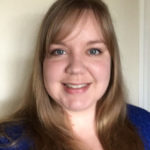
Assistant Professor of Mechanical Engineering
Ho-Shang and Mei-Li Lee Faculty Fellow
Alexis Kaminski is an Assistant Professor of Mechanical Engineering at the University of California, Berkeley. Alexis received her BSc (2010) and MSc (2012) in Mechanical Engineering from the University of Alberta, and her PhD (2016) in Applied Mathematics and Theoretical Physics from the University of Cambridge. Prior to joining UC Berkeley in 2021, she worked as a postdoc in the College of Earth, Ocean, and Atmospheric Sciences at Oregon State University and at the University of Washington Applied Physics Laboratory.
November 2021 – update for graduate recruitment: I am recruiting PhD students to start in fall 2022! For more information, please see https://akkaminski.github.io
Stratified flows, hydrodynamic instabilities, transition to turbulence, mixing and entrainment, internal waves, non-normal stability, upper-ocean dynamics, physical oceanography, geophysical and environmental fluid dynamics.
AK Kaminski, KR Helfrich, and J Pedlosky 2020 An experimental investigation of the Rossby two-slit problem. Journal of Fluid Mechanics 893, A4.
J Tu, D Fan, Q Lian, Z Liu, W Liu, A Kaminski, and W Smyth 2020 Acoustic observations of Kelvin-Helmholtz billows on an estuarine lutocline. Journal of Geophysical Research: Oceans 125(4), JC015385.
AK Kaminski and MR Flynn 2020 Modal decomposition of polychromatic internal wave fields in arbitrary stratifications. Wave Motion 95, 102549.
AK Kaminski and WD Smyth 2019 Stratified shear instability in a field of pre-existing turbulence. Journal of Fluid Mechanics 862, 639-658
AK Kaminski, CP Caulfield, and JR Taylor 2017 Nonlinear evolution of linear optimal perturbations of strongly stratified shear layers. Journal of Fluid Mechanics 825, 213-244.
RM Sahuri, AK Kaminski, MR Flynn, and M Ungarish 2015 Axisymmetric gravity currents in two-layer density-stratified media. Environmental Fluid Mechanics 15(5), 1035-1051.
AK Kaminski, CP Caulfield, and JR Taylor 2014 Transient growth in strongly stratified shear layers. Journal of Fluid Mechanics 758, R4.
CJ Prend, GR Flierl, KM Smith, and AK Kaminski 2021 Parameterizing eddy transport of biogeochemical tracers. Geophysical Research Letters 48, e2021GL094405.
AK Kaminski, EA D’Asaro, AY Shcherbina, and RR Harcourt 2021 High-resolution observations of the North Pacific transition layer from a Lagrangian float. Journal of Physical Oceanography 51, 3163-3181.
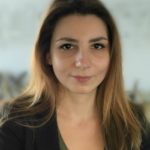
Associate Adjunct Professor
6163 Etcheverry HallProfessor Vassilia Zorba is the Group Leader for the Laser Technologies Group at the Lawrence Berkeley National Laboratory in Berkeley, CA. She is also an Associate Adjunct Professor in the Department of Mechanical Engineering of the University of California, Berkeley. Her research focuses on the development of the next-generation of laser tools for advanced sensors and laser-based manufacturing. Her research interests include ultrafast laser-material interactions, non-linear optics, remote sensing, laser-induced plasma chemistry, and laser ablation-based chemical analysis in electrochemical energy storage, with emphasis on next-generation Li-ion batteries. Her work has also focused on femtosecond laser surface structuring technologies and biomimetic material functionalization. Professor Zorba’s credits include 72 publications in peer-reviewed journals, more than 40 invited, keynote and plenary talks and a 2011 R&D 100 Technology Award. She serves as a senior editor for the Springer-Nature journal Applied Physics A and is a member of the editorial board for the Journal of Analytical Atomic Spectrometry, Applied Spectroscopy and Spectrochimica Acta Part B.
To view Professor Zorba’s CV, please click here.
Energy Science & Technology; MEMS/Nano; Materials
More information about Professor Zorba’s research can be found on her group website, teamd.lbl.gov.
To view a list of Professor Zorba’s publications on Google Scholar, please click here.
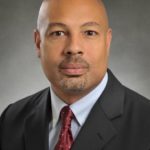
Vice President and Chief Engineer
Boeing Commercial Airplanes
Howard McKenzie was named vice president and chief engineer for Boeing Commercial Airplanes in August 2021. He is responsible for effectiveness and efficiency of the engineering function across Commercial Airplanes and leads engineering design, safety and customer support activities for all commercial airplane models.
Most recently, McKenzie was vice president and chief engineer for Boeing’s Global Services business unit. While there, he led the alignment of 7,000 engineers into one cohesive engineering function that supports commercial and government customers worldwide. Focusing on safety and first-time quality, his team provided design engineering, aircraft modifications and conversions as well as engineering support and services.
Prior to that assignment, McKenzie was vice president and general manager of Boeing Test & Evaluation, where he led a team of engineers, pilots, mechanics and technicians responsible for the testing, evaluation and certification of Boeing commercial and defense products.
Previously, he served as vice president, chief project engineer for the 777 program where he was responsible for product integrity and safety for the 777 worldwide fleet. He has also served as director of engineering for the 777 program, responsible for the engineering design functional organizations as well as ensuring product compliance to regulatory standards and requirements including product integrity and safety. Also, McKenzie was chief engineer of Airplane Level Integration on the 777 program, chief engineer of Airplane Systems on the 777 program, and chief engineer for BCA Environmental Systems Engineering. McKenzie worked at McDonnell Douglas Corporation prior to his assignments within Boeing.
McKenzie graduated from the University of California at Berkeley with a Bachelor of Science Degree in Mechanical Engineering in 1988. He is also Boeing’s Executive focal for the University of California at Berkeley.
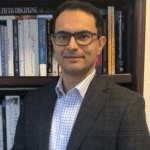
Lecturer
6163 Etcheverry HallAla Moradian is senior member of technical staff, scientist at Applied Materials inc. He is also an instructor in the Department of Mechanical Engineering at the University of California, Berkeley.
Dr. Moradian joined Applied Materials in 2012 at the Varian Semiconductor Equipment in Gloucester, MA where he worked on the development of complex ion implanter systems, crystal growth technology and furnace development, and led multiple initiatives in advanced computational physics-based simulation capabilities for product development. He has held multiple technical roles in developing products for semiconductor manufacturing at Applied, including epitaxy thin film systems as well as III-V materials chambers and the development of processes. Some of other areas of his research/work has been high temperature materials processes, in-situ metrology technology development, novel heating, cooling, and thermometry technologies, use of sensors and algorithms to enable fault-detection and auto-correction.
Dr. Moradian led development of concepts for next generation of surgical ophthalmic equipment at Bausch & Lomb (now Bausch Health) 2008-12 in St Louis, MO. He developed an R&D lab equipped with the state-of-the-art testing, analysis, and prototyping capabilities and spearhead competitive benchmarking of products and proposed multiple new products, several of which were successfully launched to the market.
During a postdoctoral fellowship funded by NSERC strategic grant, he led the multi-scale and multi-physics modeling of a novel method for large scale production of carbon nanotube at the University of Sherbrook QC and University of Toronto (joint development).
Dr. Moradian has published more than 20 archival journal papers and conference proceedings. He holds more than 13 patents in the area of medical devices, crystal growth, semiconductor processing equipment, equipment for thin film deposition, and temperature measurement. He is passionate about technology and engineering education. Dr. Moradian has been a program evaluator (PEV) for ABET (accreditation board for engineering and technology) since 2013 and served on multiple program reviews as a PEV, representing ASME. He has served as the section chair, vice-chair, and secretary of ASME, ECLIPE intern at the ASME center for education and global outreach, as well as ASME global scholarship and awards committee. He has been serving on NSF proposal review committees both in technical and commercial capacities (small business grants) since 2015.
Dr. Moradian has B.S., M.S., and Ph.D. (U of Toronto, 2007) in mechanical engineering and a master’s degree in business/management from Harvard (2020).
Dr. Moradian’s primary research interests are product development, advanced materials processing, semiconductor manufacturing, computational methods for process modeling and virtual fabrication, digital twin, and multi-physics modeling for product design optimization and manufacturing.
To view a list of Dr. Moradian’s publications, please click here.
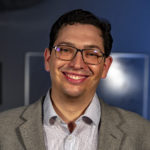
Associate Professor of Mechanical Engineering
Deb Faculty Fellow
Dr. Michael Gollner received his B.S. (2008), M.S. (2010) and Ph.D. (2012) in Mechanical Engineering from the University of California, San Diego. He was a faculty member in the Department of Fire Protection Engineering at the University of Maryland, College Park from 2012-2019. He is broadly interested in fire science problems, utilizing experiments and combustion and fluid dynamics theory to solve problems related to fire spread, material flammability, and smoke transport. Much of his work is focused on applications to wildfires, including their spread through vegetation, ignition of structures in the wildland-urban interface (WUI), transport of embers, fire whirls, and emissions from wildfire smoke.
Dr. Gollner is active in professional society leadership, serving as Treasurer and a member of the Board of Directors for the International Association of Wildland Fire (IAWF), Chair of the Research Advisory Board of the National Fire Protection Agency (NFPA) Fire Protection Research Foundation, and as a member of the Management Committee of the International Association for Fire Safety Science. He also serves as Associate Editor for the journal Fire Technology and serves on the boards of the Fire Safety Journal and the International Journal of Wildland Fire. He is a principal member of the NFPA Technical Committees on Spaceports and Wildland and Rural Fire Protection. He is also a recipient of the NSF CAREER award, Proulx Early Career Award in Fire Safety Science, and the Fire Protection Research Foundation Medal.
To view Dr. Gollner’s CV, please click here.
Combustion, Fire Dynamics, Wildland Fire, Fluid Mechanics
To view a list of Dr. Gollner’s publications, please click here.
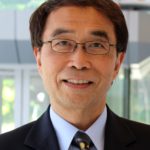
Dr. Kon-Well Wang is the Stephen P. Timoshenko Professor Mechanical Engineering at the University of Michigan. He received his Ph.D. degree from the University of California, Berkeley in 1985, worked at the General Motors Research Labs as a Senior Research Engineer, and started his academic career as a faculty at the Pennsylvania State University in 1988. During his Penn State years, Professor Wang has served as the William E. Diefenderfer Chaired Professor in Mechanical Engineering, Director of the Structural Dynamics and Controls Lab, Co-Founder and Associate Director of the Vertical Lift Research Center of Excellence, and Group Leader for the Center for Acoustics and Vibration. Dr. Wang joined the University of Michigan in 2008 and served as the Department Chair of Mechanical Engineering from 2008 to 2018. He has also been the Division Director of the Engineering Education and Centers Division at the National Science Foundation for two years, 2019 and 2020, via an Executive Intergovernmental Personnel Act appointment.
Professor Wang’s main technical interests are in adaptive structural systems and structural dynamics & controls. He has received various recognitions for his accomplishments, such as the Pi Tau Sigma-ASME Charles Russ Richards Memorial Award, the ASME J.P. Den Hartog Award, the SPIE Smart Structures and Materials Lifetime Achievement Award, the ASME Adaptive Structures and Materials Systems Prize, the ASME N.O. Myklestad Award, the ASME Adaptive Structures and Material Systems Best Paper Awards, the ASME Rudolf Kalman Award, the NASA Tech Brief Award, and the SAE Ralph Teetor Award. His major leadership activities in the professional community include being Chair of the ASME Technical Committee on Vibration and Sound, Chair of the ASME Mechanical Engineering Department Heads Executive Committee, General Chair of the SPIE Damping and Isolation Conference and of the ARO Workshop on Smart Structures. Dr. Wang has been the Editor in Chief for the ASME Journal of Vibration & Acoustics. He is currently an Editorial Board Member or an Associate Editor for five journals and/or book series, and is a member of the ASME Technical Committee on Publications and Communications, which has supervision of activities concerning the dissemination of technical information associated with all ASME Transactions Journals, Conference Publications, and Books. Dr. Wang is a Fellow of the ASME, AAAS, and IOP.
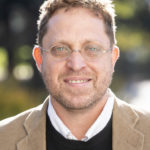
Lecturer
5116 Etcheverry Hall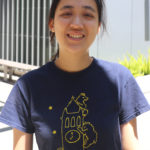
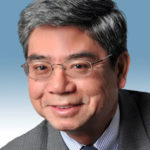
Distinguished Professor Emeritus of Hydromechanics and Ocean Engineering
5104 Etcheverry HallEducation
Ph.D., University of California at Berkeley, 1973. Joined faculty in 1982.
Positions Held
Professor of Hydromechanics and Ocean Engineering, 1982-
Inaugural American Bureau of Shipping Endowed Chair in Ocean Engineering, 2012 – 2017
Visiting Professor, Center of Excellence for Ship and Offshore Structures (CESOS), Norwegian University of Science and Technology, Trondheim, Norway, Spring 2007
Humboldt Professor, Institut fu¨r Schifftechnischen, Gehardt Mercator University of Duisburg, Germany, 1998
Visiting Professor, Research Institute of Applied Mechanics, Kyushu University, Japan, 1998
Chair, Naval Architecture & Offshore Engineering, University of California at Berkeley, 1989 – 1997
Humboldt Professor, Institut fu¨r Schiffbau, University of Hamburg, W. Germany, 1988
Fulbright-Hayes Senior Scholar, University of Adelaide, Australia, 1981
Principal, R. W. Yeung – Consulting Naval Architect and Ocean Engineer, 1976-
Assistant / Associate Professor of Naval Architecture, Mass. Inst. of Tech., 1974 – 1982
Naval Architect, Litton Ship Systems, Advanced Marine Technology Division, CA, 1970 – 1971
Instructor, Long Beach Naval Shipyard, UCLA Extension, 1970 – 1971
Academic Curriculum Vitae of Professor R. W. Yeung (2023)
Hydromechanics, naval architecture, ship hydrodynamics, mathematical modeling, numerical fluid mechanics, offshore mechanics, ocean processes, separated flows, wave-vorticity interaction, vortex-induced vibrations, ocean-wave energy, tidal current energy, two-layer fluid flow, hydroelasticity, multi-hull optimization, moonpool resonance, vortical flow for slender hulls in forward motion, wave-to-wire conversion, model-predictive controls, micro-scale turbine, unsteady ship interactions
To view a list of Professor Yeung’s publications, please visit Professor Yeung’s website.
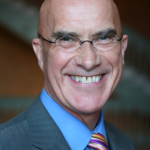
Professor Emeritus of Mechanical Engineering
5104 Etcheverry HallProfessor Paul Wright is internationally recognized as a leader in design, 3D printing and manufacturing. His recent research has focused on the creation of self- powered wireless nodes for the Internet of Things (IoT). The Advanced Manufacturing for Energy (AME) lab has extensive experience in the design and manufacture of energy harvesting, including devices that utilize thermal electric generators (TEG), vibration energy harvesting, thin film solar cells, thin film batteries and super capacitors. 3D-dispenser printing and screen-printing allow us to create fully functioning IoT nodes with a wide set of performance characteristics. A detailed modeling tool on the performance of harvesters, batteries and super-capacitors allows an analysis of the various load-demand scenarios. Professor Wright joined the faculty of the Mechanical Engineering Department in 1992 and he holds the A. Martin Berlin Professorship. From 2007 to 2013 he was the Director of the Center for Information Technology for Research in the Interest of Society (CITRIS). Most recently he was the Director of the Berkeley Energy and Climate Institute (BECI) and a co-director of the Berkeley Wireless Research Center (BWRC).
Energy scavenging and storage; Smart materials; Design and manufacturing for micro-integration of ‘intelligent objects’; Design of wireless sensor systems. Application areas include: Energy efficiency and demand response; First responder applications; Medical products. Previous research on Internet-based manufacturing & open-architecture control.
To view a list of Professor Wright’s publications, which are included in his CV, please click here.
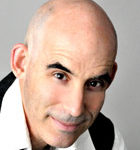
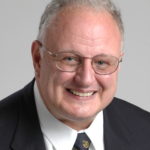
Professor Emeritus of Fire Safety Engineering Science
6165 Etcheverry HallFire safety engineering science: fire physics, fire modeling, compartment fire growth, flamespread, flame shapes and heights, excess pyrolyzates, soot formation, backdrafts, glass breaking in compartment fires, explosions, gravity currents, salt water modeling, self-heating to ignition, brand lofting, urban/wildland intermix and post-earthquake conflagrations.
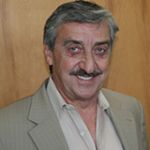
Lecturer
5106 Etcheverry Hall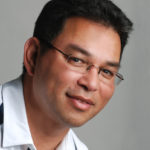
Lecturer
5106 Etcheverry HallModel Predictive Control, Distributed and Robust Constrained Control, Automotive Control Systems, Energy Efficient Building Control Systems
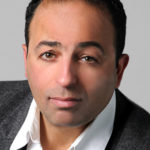
Will C. Hall Family Chair in Engineering
Associate Dean for Research, College of Engineering
Will C. Hall Endowed Chair
Chair of the UCB Computational & Data Science & Engineering Program
Professor of Mechanical Engineering
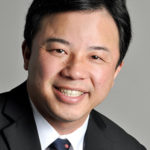
Professor Emeritus of Mechanical Engineering
Ernest S. Kuh Endowed Chair, in the Department of Mechanical Engineering (2009-2019)
Professor Xiang Zhang is the inaugural Ernest S. Kuh Endowed Chaired Professor at UC Berkeley and the Director of NSF Nano-scale Science and Engineering Center (NSEC). He is the Director of the Materials Sciences Division at Lawrence Berkeley National Laboratory (LBNL), as well as a member of the Kavli Energy Nano Science Institute.
Professor Zhang is an elected member of US National Academy of Engineering (NAE), Academia Sinica (National Academy in Republic of China), and Fellow of five scientific societies: APS (The American Physical Society), OSA (The Optical Society of America), AAAS (The American Association for the Advancement of Science), SPIE (The International Society of Optical Engineering), and ASME (The American Society of Mechanical Engineers).
Professor Zhang received Ph.D from UC Berkeley (1996) and MS from University of Minnesota and MS/BS from Nanjing University, PR China. He was an assistant professor at Pennsylvania State University (1996-1999), and associate professor and full professor at UCLA (1999-2004) prior to joining Berkeley faculty in 2004.
Professor Zhang’s current research focuses on nano-scale science and technology, materials physics, photonics and bio-technologies. He has published over 240 journal papers, including over 50 publications in Science, Nature series, PNAS and Physical Review Letters. He has given over 280 Keynote, Plenary and Invited talks at international conferences and institutions. He served as a Co-Chair of NSF Nanoscale Science and Engineering Annual Grantee Conferences in 2004 and 2005, Chair of Technical Program of IEEE 2nd International Conference on Micro and Nano Engineered and Molecular Systems in 2007, and current Chair of Academic Advisory Board for Research Center for Applied Science (RCAS), Academia Sinica, Taiwan, ROC.
In 2008, Professor Zhang’s research was selected by Time Magazine as one of the “Top Ten Scientific Discoveries of the Year” and “50 Best Inventions of the Year”, Discover Magazine’s “Top 100 Science Stories” in 2007, and R&D Magazine’s top 25 Most Innovative Products of 2006. His research has frequently been featured by international media including BBC, CNN, ABC, New York Times, and Wall Street Journal.
Professor Zhang is a recipient of the NSF CAREER Award (1997); SME Dell K. Allen Outstanding Young Manufacturing Engineer Award (1998) and ONR Young Investigator Award (1999). He was awarded the Chancellor’s Professorship by UC Berkeley (2004-2009), Distinguished Lecturer by University of Texas at Austin in 2004 and SEMETECH in 2005, respectively, Rohsenow Lecturer at MIT (2009) and William Reynolds Lecturer at Stanford (2012). In 2011, he was awarded Fred Kavli Distinguished Lectureship by Materials Research Society (MRS), Miller Professorship by UC Berkeley, and Distinguished Visiting Scientist (DVS) by the University of Toronto. In 2014, he was awarded the Fitzroy Medal for pioneering contribution in metamaterials and superlens.
Micro-nano scale engineering, novel 3D fabrication technologies in microelectronics and photonics, micro and nano-devices, nano-lithography and nano-instrumentation, rapid prototyping, bio-MEMS, and semiconductor manufacturing.
To view a list of Professor Zhang’s publications, please visit the Zhang Lab website.
